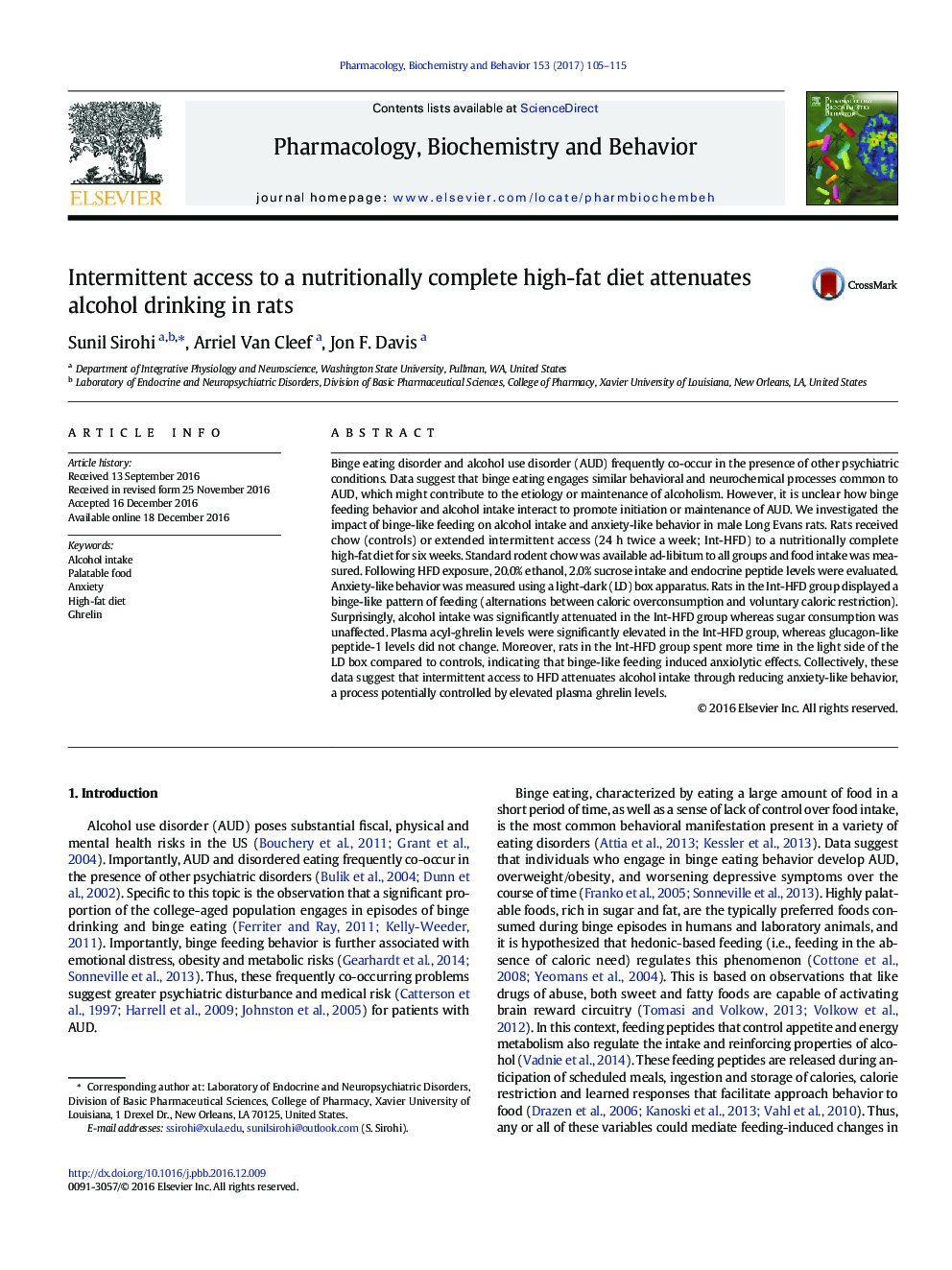| Article ID | Journal | Published Year | Pages | File Type |
|---|---|---|---|---|
| 5515223 | Pharmacology Biochemistry and Behavior | 2017 | 11 Pages |
â¢Intermittent high-fat diet (Int-HFD) access selectively attenuated alcohol intake.â¢Int-HFD intake increased plasma ghrelin levels and induced anxiolytic behavior.â¢Altered anxiety levels due to Int-HFD exposure may have impacted alcohol intake.
Binge eating disorder and alcohol use disorder (AUD) frequently co-occur in the presence of other psychiatric conditions. Data suggest that binge eating engages similar behavioral and neurochemical processes common to AUD, which might contribute to the etiology or maintenance of alcoholism. However, it is unclear how binge feeding behavior and alcohol intake interact to promote initiation or maintenance of AUD. We investigated the impact of binge-like feeding on alcohol intake and anxiety-like behavior in male Long Evans rats. Rats received chow (controls) or extended intermittent access (24Â h twice a week; Int-HFD) to a nutritionally complete high-fat diet for six weeks. Standard rodent chow was available ad-libitum to all groups and food intake was measured. Following HFD exposure, 20.0% ethanol, 2.0% sucrose intake and endocrine peptide levels were evaluated. Anxiety-like behavior was measured using a light-dark (LD) box apparatus. Rats in the Int-HFD group displayed a binge-like pattern of feeding (alternations between caloric overconsumption and voluntary caloric restriction). Surprisingly, alcohol intake was significantly attenuated in the Int-HFD group whereas sugar consumption was unaffected. Plasma acyl-ghrelin levels were significantly elevated in the Int-HFD group, whereas glucagon-like peptide-1 levels did not change. Moreover, rats in the Int-HFD group spent more time in the light side of the LD box compared to controls, indicating that binge-like feeding induced anxiolytic effects. Collectively, these data suggest that intermittent access to HFD attenuates alcohol intake through reducing anxiety-like behavior, a process potentially controlled by elevated plasma ghrelin levels.
